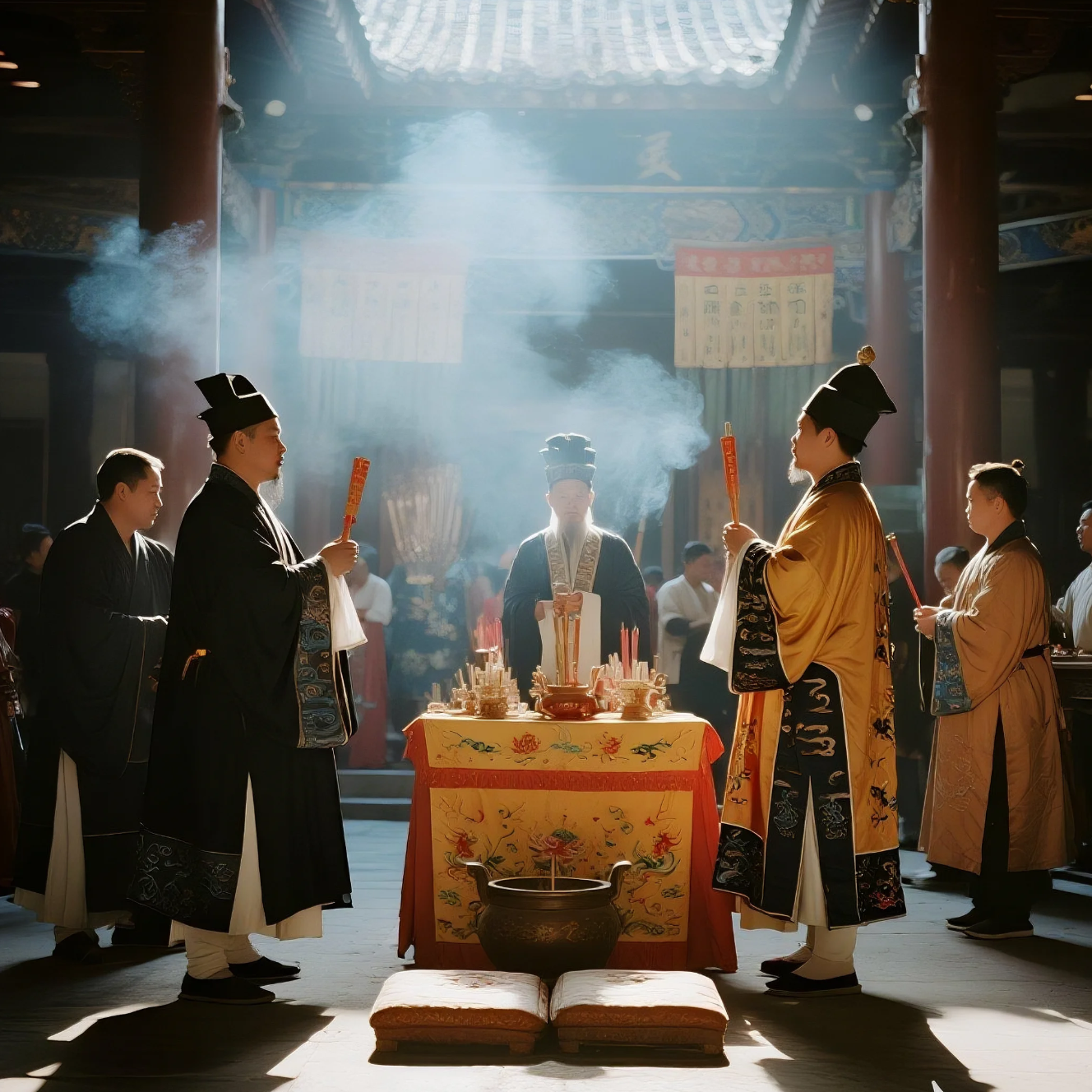Understanding What Taoism (as a Religion) Is

Taoism is an ancient Chinese philosophy and religious belief, ranking alongside Confucianism and Buddhism as one of China’s three major ideological systems.
The core belief of Taoism is "the Dao" (often translated as "the Great Dao"), a transcendent concept referring to the fundamental principle of the universe. It is a mysterious, supernatural force that encompasses the laws governing the creation and transformation of all things, and even human life is influenced by it. Taoism emphasizes cultivation, focusing on the inherent nature of all beings and pursuing the harmony and unity of body, mind, and spirit. Through practices like meditation, breathwork, martial arts, and prayer, practitioners seek to strengthen their physical and spiritual power, with the ultimate goal of achieving immortality.
Taoism’s origins can be traced to the late Eastern Han Dynasty, when Zhang Ling (also known as Zhang Daoling) formally established it at Heming Mountain in Sichuan Province, founding the "Wudoumi Dao" (the Way of the Five Pecks of Rice)—a milestone marking Taoism’s official formation. Its ideological roots lie in the worship of heaven, earth, stars, and spirits from the periods of Fuxi and Huangdi (the Yellow Emperor), as well as Daoist philosophy from the Spring and Autumn Period, the quietist practices of Huang-Lao thought, and immortalist techniques.
Taoism’s theoretical foundation is largely derived from *Laozi’s Daodejing* (*The Classic of the Dao and Its Virtue*), regarded as its primary scripture. Laozi is venerated as Taoism’s patriarch, titled "Taishang Laojun" (the Supreme Venerable Lord).
Taoist practices include various cultivation methods such as *waidan* (external alchemy, using minerals to create elixirs), *neidan* (internal alchemy, cultivating energy within the body), and *fulu* (talismanic writing). These aim to achieve immortality and transcendence. Taoist rituals and activities are diverse, including fasting and altar ceremonies (*tanjiao*), which serve not only religious purposes but also reflect Taoism’s emphasis on harmony with nature and social order. Major Taoist festivals—such as Shangyuan Festival (Lantern Festival), Zhongyuan Festival (Ghost Festival), and Xiayuan Festival—are not only part of religious life but also integral to Chinese culture.
Taoism has a vast and complex pantheon of deities, primarily including the Three Pure Ones, the Four Sovereigns, star gods, and directional gods. The Three Pure Ones—Yuqing Yuanshi Tianzun (Celestial Venerable of Primordial Beginning), Shangqing Lingbao Tianzun (Celestial Venerable of Numinous Treasure), and Taiqing Daode Tianzun (Celestial Venerable of the Dao and Virtue, i.e., Taishang Laojun)—are the highest deities in Taoism. The Four Sovereigns, who assist the Three Pure Ones, include Yuhuang Dadi (Jade Emperor), Beiji Dadi (Great Emperor of the North Pole), Tianhuang Dadi (Great Emperor of Heaven), and Houtu Huangdiqi (Earth Mother). This pantheon reflects Taoism’s understanding of the universe and nature, as well as its concern for human society and individual life.
Taoism has evolved through numerous stages in Chinese history: its formation in the late Eastern Han Dynasty, maturation during the Wei, Jin, Southern and Northern Dynasties, peak in the Sui, Tang, and Northern Song Dynasties, the emergence of new sects in the Southern Song, Jin, and Yuan Dynasties, and gradual decline in the Ming and Qing Dynasties. After the founding of the People’s Republic of China, Taoist circles underwent democratic reforms of religious systems. In 1957, the China Taoist Association was established, uniting Taoist believers nationwide.
Taoism holds a significant position in traditional Chinese culture, exerting a profound influence on technological development, respect for life, and women’s status. Its philosophical ideas—emphasizing *wuwei* (non-action), *ziran* (naturalness), and harmony—have shaped not only Chinese culture but also philosophical and religious thought worldwide.
